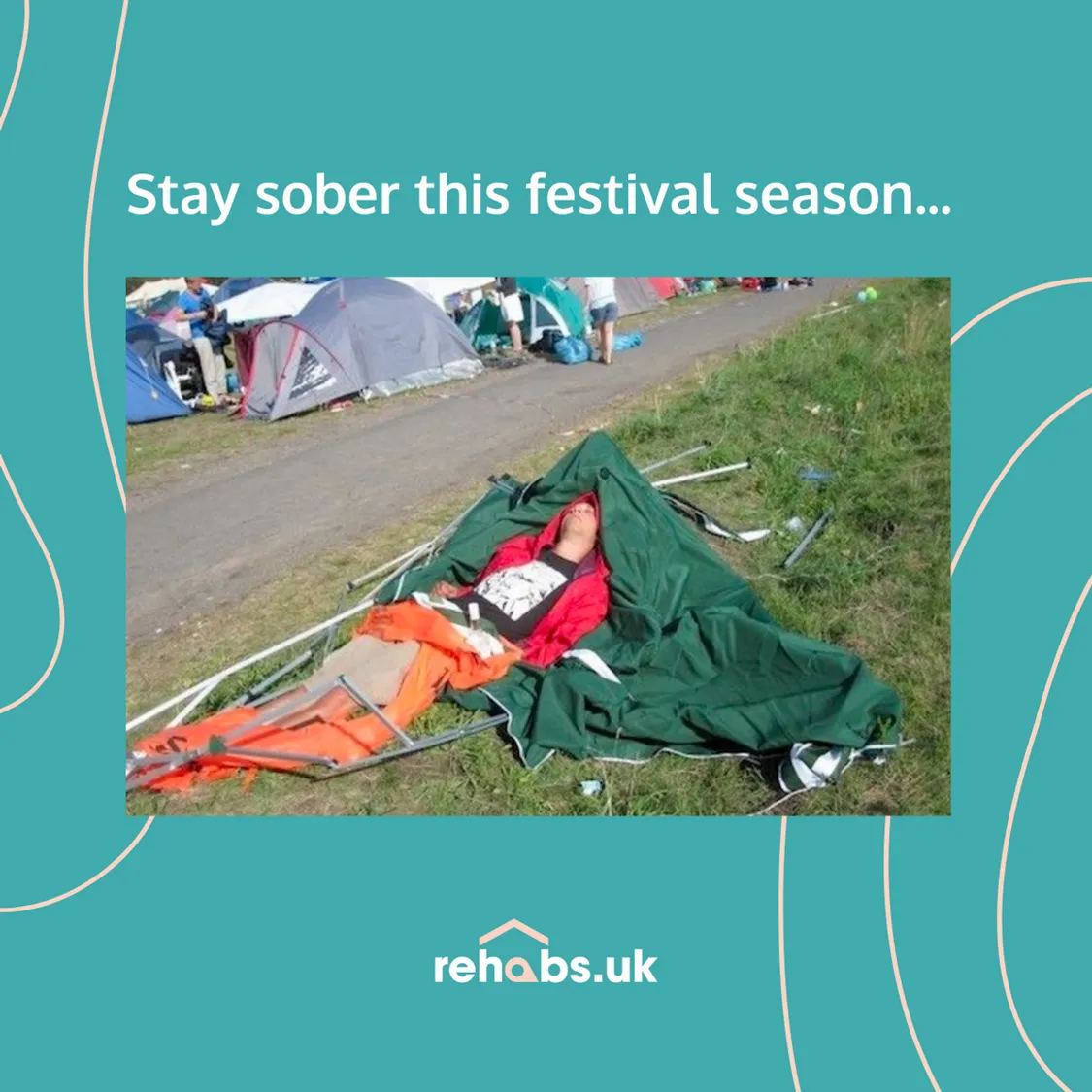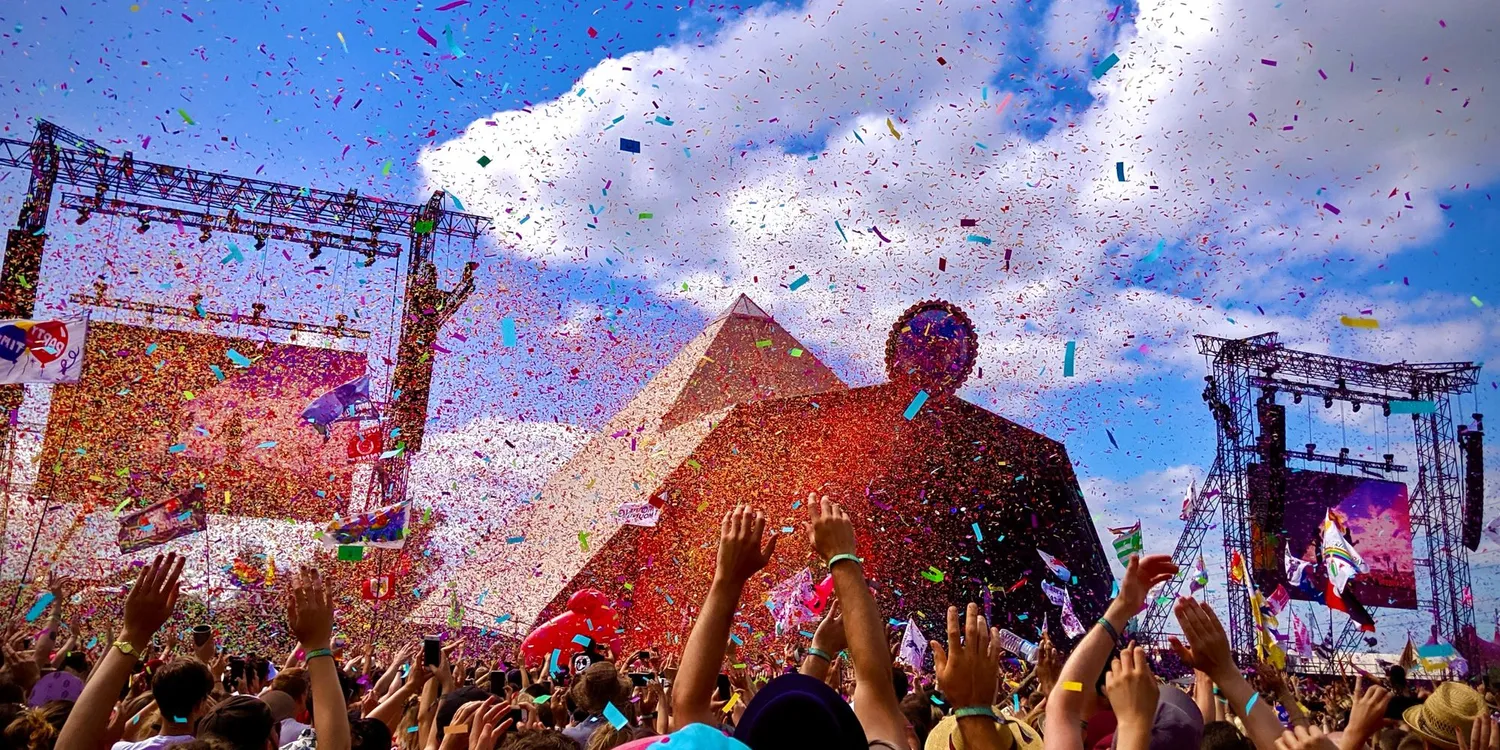05 Aug 2022
We are now roughly halfway through the festival season in the UK and with this in mind, its time to talk about alcohol and illegal drugs at festivals.
This topic has caused debate for many years as there is a clear correlation between music festival events and the amount of people consuming alcohol and drugs. Attendees are free from school and work obligations, and the drudgeries of their everyday lives. This carefree environment is conducive to dangerous and illegal activities such as drug use. The NHS estimates suggest almost half of 16–24-year-olds have taken drugs. Whilst the most commonly used drug is marijuana, these numbers also include ecstasy (MDMA), cocaine, and ketamine, amongst others. The real question is how do we tackle this issue? How to do those in sobriety deal with these environments? And is it realistic to believe people will ever stop consuming these substances?
The law
UK law prohibits you from being in possession of illegal drugs and therefore bringing them to festivals. All festivals will have strict security measures in place which may include full searches on arrival and drug detection or ‘sniffer’ dogs. If you are found in possession of drugs you may be arrested and are liable to prosecution and/or may not be allowed to go into the festival. If you are found with drugs once on site, you may be ejected and/or arrested.
If you are prosecuted for a drugs offence, you will get a criminal record. This can have long lasting consequences. There are security measures in place at these types of events to help keep the festival goers safe. It is widely acknowledged that some individuals will continue to bring drugs to festivals. With this in mind many people agree that it is important to understand the potential risks of consuming these substances. By offering education this allows the individual to make a more informed decision and reducing the risk of harm.
Alcohol
Excessive alcohol use is commonly found at music festival events. As this type of drug is not illegal it may seem like a safe option. However, alcohol is just as dangerous as illegal substances. The risk of excessive alcohol intake can include:
- Impair judgement
- Loose control
- Liver damage / failure
- High blood pressure
- Heart attack
- Stroke
Alcohol is a depressant, and when combined with stimulant drugs such as ecstasy, MDMA and amphetamines it often results in the effects of either or both substances being masked, leading to increased consumption and higher risks of overdose. Alcohol can also increase the dehydration risk associated with ecstasy use.

Illegal substances
The most common type of illegal drugs used at music festivals according to the Alcohol and Drug Foundation are ecstasy and MDMA. The risks that are associated with the consumption of these substances include:
- high body temperatures
- dehydration
- increased heart rate and blood pressure
- anxiety
- irrational behaviour
- visual and auditory hallucinations
The effects that can happen when taking these drugs can lead to other behaviours such as excessive water consumption which can often be fatal. Environmental factors such as sunstroke and heat can lead to further dehydration and overheating.
With the risk of these potentially dangerous effects the best option is to not take any illegal substances at the music festival. This way you will be able to fully enjoy the music and atmosphere which the event is there to create.
On the other hand, it is extremely difficult to try to convince others that they shouldn’t be taking illegal substances. With the risk of death from these substances some may say the way forward is with access to safe spaces where education around drugs such as ‘Text the Effects cards’, drug testing, hydration stations and chill spaces can help reduce harm.
Benefits of harm reduction strategies
All drugs are potentially dangerous; there are no harmless drugs. The only way to avoid risks is not to take drugs at all.
However, harm reduction strategies in these environments have significant reach. They target a broad sub-set of the population that is often immune to general health warnings about drug use, and as a result tend to be at higher risk of harm.
This is important as many people, especially young people, experiment with recreational drugs for the first time at these events. Harm reduction interventions at music events also provide an important opportunity for education and awareness around the risks associated with recreational drug use. This may potentially disrupt drug use paths, as education and awareness has been demonstrated as an important factor in moderating risky behaviour. These interventions present an opportunity to potentially influence the frequency, intensity and risks associated with future drug use in individuals.
Drug testing
The illegal drug market is unregulated meaning that substances can vary greatly in purity and strength. The Loop test drug samples at UK festivals to check for identity, purity and strength. They find that over one in ten samples are mis-sold. Substances mis-sold as ecstasy, cocaine and ketamine included paracetamol, antimalarial tablets, plaster of Paris, household cleaner and pentylone analogues – a strong stimulant lasting up to 36 hours that causes anxiety, paranoia and insomnia and often requiring medical treatment.
According to Festival Safe, some festivals now have on site drug safety testing facilities. Check your event website to see if they will have this service available.
Home drug testing kits can also be bought online and can be useful when there is no access to a full lab test. Although they cannot eliminate risk entirely, if used carefully and with awareness of the limitations, they can be a valuable harm reduction tool and may help people make a more informed decision.
Real life cases:
Jordan Blackburn, age 20, spent three days in a coma following his drug consumption at the Kendal Calling music festival. He told the British Broadcasting Corporation, “I don’t have much recollection, I think because it was such a traumatic event; it was really awful.”
His 18-year-old friend Christian Pay died from taking drugs at the same festival. Blackburn continued, “I think, at festivals especially, teenagers just want to have a good time with all their friends and they initially forget the dangers they can put themselves in by doing something stupid like we did.”
According to Sergeant Dan Marshall of the Indio Police Department in Coachella Valley, complications arise when drug use — which can be dangerous in and of itself — is piled onto the already-toxic brew of environmental factors.
“At a festival, your inhibitions get lowered,” said Marshall. “Maybe it’s your first time experimenting with drugs like MDMA, which raises your internal body temperature. It’s hot out here already; it’s dusty. People are on a grass field. They’re dancing and sweating and moving around, and they get dehydrated. They drink two beers, it’s 100 degrees outside, and before they know it, they’re in trouble.”
Risk of addiction
Young people often think that par-taking in excessive alcohol or drug consumption at events and festivals is harmless. However, the risk of addiction is something which should be a high priority. Those suffering with addiction may begin their drug taking at a young age. By chasing the first euphoric high during a summer of freedom it can be a slippery slope.
Sobriety at festivals
Though statistics show that many — if not most — festival-goers use mind-altering substances at events, certainly not every attendee is high. Founder of The Sobriety Collective Laura Silverman, who is in recovery from alcohol abuse, shared her experiences of enjoying festivals without partaking in drugs or alcohol: “I’ve been to countless festivals, all in sobriety. The key to making the most of the event is to truly want to be there for the music and atmosphere and friends. Stay hydrated, take photos, people-watch, listen to the music with an open heart, and be yourself. Remember that being sober isn’t the end of fun. In my humble opinion, it’s the beginning of life.”
Recreational drug user Sherry March of Washington, D.C. admitted that drug abuse has impeded upon her ability to fully enjoy a festival. She said, “I’ve done a festival sober before and honestly, it was still pretty great. I just danced a ton, which basically gave me the endorphin boost I was looking for. Honestly, as I’ve gotten older, I’ve realized that the people you’re with make the biggest difference at a festival, not the drugs you’re on. If you’re too [messed] up, it can really dilute the experience. When I saw Radiohead at Bonnaroo, I was so excited. I took molly for the first time, which I thought would make it even better. Instead, I was distracted by other things and didn’t really get to enjoy Radiohead the way I would’ve if I was sober.”
Festival-goers who wish to stay sober during events can seek support in like-minded friends or in organised groups dedicated to sobriety, such as Alcoholics Anonymous.
These groups such as AA and CA often put on their own festivals, for those who are in sobriety. Music events which do not present the temptation of alcohol or illegal substances. This might be a safe space for an individual who is in recovery but still wants to be able to enjoy music and events.
Contact:
If this blog post has triggered any questions or concerns, please do not hesitate to contact our trained Treatment Advisors who are on hand to help you.
